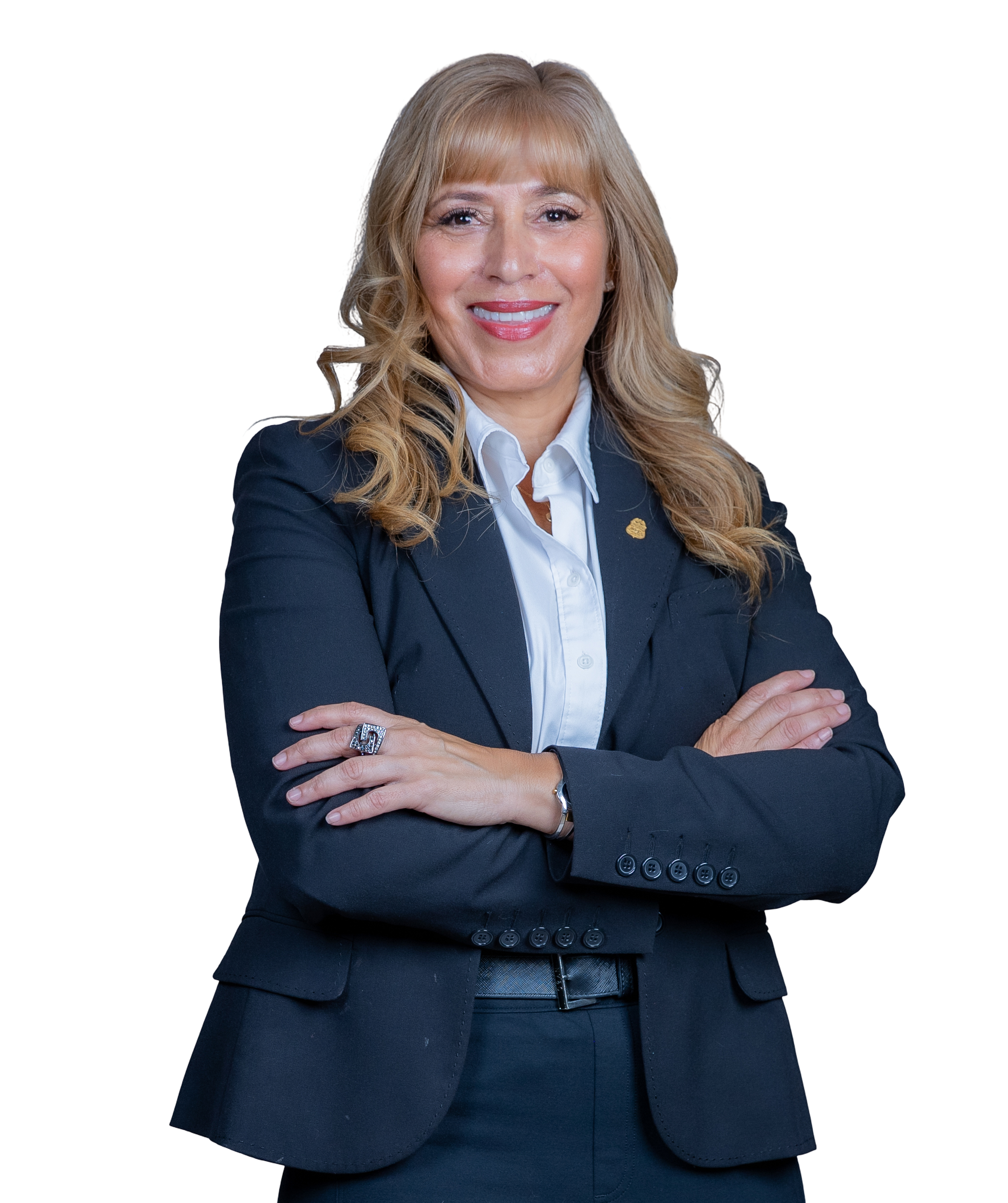In the world of federal law enforcement, few stories capture the essence of perseverance and purpose quite like that of Rita Fragoso. Her journey from a young woman told she should choose a “more realistic” career to becoming a respected FBI Special Agent spanning over two decades represents more than professional success—it embodies the transformation of doubt into unshakeable determination.
When Rita first shared her childhood dream of becoming an FBI agent, she was met with skepticism. A teacher even urged her to consider alternative paths, suggesting her aspirations were unrealistic. Rather than crushing her spirit, this doubt became the fuel that would propel her through one of the most demanding careers in public service.
“What truly inspired me to pursue this path was being told I couldn’t,” Rita reflects. “Rather than deterring me, that doubt became a source of motivation. It fueled my determination to prove that where you come from does not define what you’re capable of achieving.”
The foundation of her resolve was built within her own family. Her older sister Mari broke barriers as the first female to make the SWAT team for the Schenectady New York Police Department. Watching her sister’s courage and commitment provided Rita with a living example of what was possible and inspired her to pursue something even greater.
THE WEIGHT OF JUSTICE: DEFINING MOMENTS IN THE FIELD
Rita’s perspective as an agent was profoundly shaped during her first response to a crime scene involving a young victim. While her training had prepared her to approach cases with objectivity and focus, standing at that scene brought a new level of clarity about the true weight of their work.
“It became clear that behind every case file was a life impacted—often tragically—and that our role extended beyond collecting evidence; it was about seeking justice on behalf of those who could no longer speak for themselves,” she explains. “That experience deepened my sense of purpose and reinforced the responsibility that comes with wearing the badge.”
This foundational experience set the tone for a career that would test every aspect of her training and character. Among her most challenging cases was a homicide investigation involving a woman who had been tortured and buried alive. The suspect was in custody and had provided the location, turning the situation into a desperate race against time.
“We held on to hope that we might find her alive, but when we reached the shallow grave and began to dig, it became painfully clear that we were too late,” Rita recalls. The case marked her first direct encounter with a deceased victim, leaving a lasting impact that shaped her approach to every subsequent investigation.
The medical examiner took time to walk her through the autopsy process, pointing out small details and sharing insights that could never be found in any textbook. This experience taught Rita to balance empathy with professionalism, understanding that behind every crime scene is a human life, and that every piece of evidence tells a story that must be uncovered with care, precision, and purpose.
LEADING THROUGH CHAOS: THE ART OF CRISIS MANAGEMENT
Throughout her career, Rita developed a sophisticated approach to managing high-pressure crime scenes while maintaining team morale. Her methodology centered on the understanding that her tone and composure would set the standard for everyone else involved in the investigation.
“Staying calm, organized and focused was essential—not just for the investigation, but for the morale and well-being of those around me,” she explains. Her approach involved being emotionally aware, checking in with team members regularly, delegating according to individual strengths, and creating space for people to speak up when they needed support.
Rita learned that authenticity was crucial, especially under pressure. She made it a point to acknowledge team members’ efforts and simply listen when needed. These seemingly small gestures proved powerful in maintaining team cohesion during the most intense moments of their work.
UNDERCOVER OPERATIONS: THE ULTIMATE TEST OF CHARACTER
As a certified undercover operations specialist, Rita faced some of the most challenging and rewarding aspects of her career. The role required a specific mindset rooted in confidence, adaptability, and absolute control over both environment and emotions.
“It’s not just about ‘going undercover’; it’s about living it and never losing sight of who you are or what you stand for,” she emphasizes. Success in undercover operations demanded the ability to manage risk in real time, often walking into unpredictable situations with minimal backup support.
The preparation extended far beyond memorizing cover stories. Rita had to know the details of her legend—name, background, habits, associations—until they became second nature. She studied target environments and understood the dynamics she was stepping into, always maintaining clear objectives about what information to gather and how to exit safely.
The emotional toll was significant. Forming connections that weren’t real yet felt authentic in the moment, carrying secrets, operating under false identities, and working in isolation required exceptional mental discipline. Rita learned to compartmentalize effectively, staying mission-focused while drawing firm lines between the role she was playing and her true identity.
“Undercover work requires far more than skill—it requires resilience, judgment, and an unwavering commitment to the truth, even when everything around you is built on deception,” she notes. “It demands professionalism at the highest level, sound judgment, and a deep sense of personal integrity.”
CRISIS NEGOTIATION: THE CALM IN SOMEONE ELSE’S STORM
Rita’s expertise in crisis negotiation required both mental agility and emotional control—skills developed through intensive training and real-world experience. She learned the fundamentals of active listening, rapport-building, and de-escalation techniques, but it was actual crisis situations that truly shaped her abilities.
“You learn very quickly how to stay present, no matter the chaos unfolding around you,” she explains. “You focus on tone, pace, and body language—both theirs and your own. You learn to stay calm when emotions are high, to listen more than you speak, and to create space for connection, even under extreme pressure.”
Mental agility came from her ability to adjust strategy in real time—reading cues, recognizing when communication approaches were working or failing, and knowing how to pivot without losing trust. Emotional control stemmed from discipline: staying grounded in the mission, keeping personal reactions in check, and never letting the situation dictate her state of mind.
Through every negotiation, Rita maintained a consistent mindset: her responsibility was to be the calm in someone else’s storm. This approach, more than any specific technique, carried her through the most challenging situations.
THE ESSENTIAL TRAITS OF FBI SUCCESS
Based on her extensive experience, Rita identifies four key traits that every successful FBI agent must possess: integrity, adaptability, emotional intelligence, and resilience.
“Integrity is the foundation of everything we do,” she states. “As agents, we’re entrusted with extraordinary responsibility and authority, and that trust must be upheld at all times. It’s not just about doing the right thing when others are watching—it’s about holding yourself to that same standard behind closed doors.”
Adaptability proves crucial because every case presents unique challenges and threats constantly evolve. Agents must be able to pivot quickly, learn continuously, and stay ahead of emerging dangers.
Emotional intelligence becomes critical in high-stress situations. The ability to manage personal emotions while staying attuned to others directly impacts leadership effectiveness and communication success.
Resilience develops over time through experience. Investigations can be lengthy, emotionally demanding, and frustrating. Agents must learn to navigate setbacks, manage stress, and maintain focus on their mission regardless of obstacles.
THE HUMAN SIDE OF INVESTIGATION
Emotional intelligence played a vital role throughout Rita’s investigative work. As agents frequently engage with people at their most vulnerable moments—victims, witnesses, and suspects experiencing high levels of stress, fear, or trauma—the ability to read situations and respond appropriately becomes essential.
“It’s not always about the questions you ask, but how you ask them, and whether the person across from you feels heard and understood,” Rita explains. Emotional intelligence also proved critical within investigative teams, where awareness of how colleagues were coping and personal emotional management could impact both performance and team cohesion.
For Rita, emotional intelligence helped her remain grounded through the most challenging moments, allowing her to stay focused, professional, and effective even when work became emotionally heavy or morally complex. It enabled her to connect with people, navigate difficult conversations, and lead with both strength and compassion.
FINDING BALANCE IN AN ALL-CONSUMING CAREER

Balancing the intensity of FBI work with personal life required constant intention, discipline, and readjustment. Rita acknowledges that the job was incredibly consuming, with long hours, unexpected calls, and the emotional weight of daily experiences.
“Through most of my career I found myself so fully committed to the job that I can honestly say that I had no personal life,” she admits. It wasn’t until later in her career that she learned to prioritize personal well-being, saying no when necessary and protecting her time outside work as fiercely as she protected the integrity of her job.
This evolution involved becoming more present and mindful about rest, while being more intentional about maintaining a strong support system. Rita describes this as a hard-earned balance, but an essential one for long-term success and personal well-being.
BEYOND THE HOLLYWOOD NARRATIVE
Rita’s post-retirement reflection reveals significant misconceptions about FBI work. The public often envisions high-speed pursuits, dramatic arrests, and standoffs, but these represent only brief moments in careers built on consistency, discipline, and deep purpose.
“The reality is far more complex,” she explains. Her career involved extensive undercover operations, crisis negotiations, long-term surveillance, and travel wherever missions required. She responded to countless crime scenes—many large-scale, chaotic, and emotionally intense—while developing sources and working complex, multi-jurisdictional investigations crossing state and international lines.
These cases required not only investigative skill but collaboration, adaptability, and trust within the Bureau and across multiple agencies. The emotional complexity behind the badge demanded everything: mental toughness, emotional intelligence, physical stamina, and above all, integrity.
“Even on the hardest days, I never lost sight of why I was doing it,” Rita reflects. “The mission was clear: protect the public, pursue the truth, and uphold the law with integrity. It wasn’t glamorous and it certainly wasn’t scripted, but it mattered.”
BREAKING BARRIERS AND OPENING DOORS
Being a woman in federal law enforcement presented unique challenges and meaningful milestones. Rita often found herself in rooms where she was the only woman or one of very few, sometimes working twice as hard to prove she belonged—not due to lack of capability, but because of long-standing gender perceptions in the field.
“There were times I was underestimated, or my presence was questioned, especially in leadership roles,” she acknowledges. “But rather than let that discourage me, I used it as motivation. I focused on showing up prepared, performing with consistency, and letting the results speak for themselves.”
One of her proudest milestones involved mentoring younger female agents, female professional staff, and young women aspiring to join the FBI. For Rita, success wasn’t just about breaking barriers—it was about holding the door open for those following behind her.
LEADERSHIP LESSONS FROM THE FIELD
Leading investigative teams throughout her career taught Rita valuable leadership lessons that came from field experience rather than desk work. Trust emerged as the most critical element—trusting team members’ abilities, judgment, and instincts, especially in high-stakes situations with no time for second-guessing.
She learned that leadership wasn’t about having all the answers but about creating space for people to step up, contribute, and grow. Clear communication—including direction, honest feedback, and knowing when to simply listen—made crucial differences in fast-moving, emotionally charged federal investigations.
“Most importantly, I learned that a strong leader sets the tone,” Rita emphasizes. “How I carried myself—especially during the most intense moments—directly impacted how my team showed up. Leading with composure, empathy, and clarity helped us move forward with focus and purpose, no matter the challenge.”
THE POWER OF FAMILY INFLUENCE
While Rita didn’t have formal mentors within the Bureau, she was surrounded by incredible strong women in her family who profoundly shaped her career journey. Her oldest sister Mari, a Detective with the Schenectady Police Department, provided her first true example of service, courage, and commitment.
Her middle sister Victoria, a self-employed entrepreneur, served as her steady motivator who never let her quit regardless of difficulties. Rita’s mother provided the foundation of her strength, believing in her wholeheartedly and teaching her the value of perseverance and self-belief.
Her two nieces, Victoria Marie and Collette, both Air Force Academy graduates, became sources of quiet but powerful motivation. “Knowing they looked up to me—and carried expectations of who I was—pushed me to hold myself to a higher standard,” Rita explains. “I wanted to be the kind of role model they could be proud of.”
These women weren’t just family—they were her mentors, motivation, and the reason she showed up every day with purpose and pride.
LEGACY AND LASTING IMPACT
Now retired, Rita reflects on her career with deep pride, gratitude, and fulfillment. The role tested her in every possible way—mentally, physically, and ethically—shaping not only the professional she became but the person she is today.
“This job demanded everything I had, and I can proudly and honestly say I gave it without hesitation,” she states. While cases and accomplishments hold meaning, what stands out most are the people—colleagues she worked alongside, communities they served, and victims and families whose stories stayed with her long after investigations ended.
For Rita, legacy isn’t measured by rank or recognition but by impact. “It’s about how you treat people, how you lead when the pressure is high, whether you remain true to your values when it counts,” she explains. “I hope my legacy reflects quiet strength, consistent integrity, and a commitment to meaningful service.”
WISDOM FOR THE NEXT GENERATION
Rita’s advice to future agents entering federal service today emphasizes that the job isn’t about recognition or titles—it’s about showing up with integrity, doing work quietly and thoroughly, and honoring the trust placed in them.
“Don’t underestimate your influence. People are watching how you carry yourself. Lead by example. Listen more than you speak and when the time comes, give back—share what you’ve learned,” she counsels.
She acknowledges that agents will carry stories, voices, and memories—some inspiring, others potentially haunting. This makes self-care essential, both emotionally and mentally. “Talk to someone who understands. That’s not weakness—it’s wisdom.”
Rita encourages new agents to let the job make them sharper, more empathetic, and more resilient without becoming hardened. “Stay grounded. Stay curious. And don’t forget to look around once in a while and be proud of the work you’re doing. It matters—more than you know.”
A JOURNEY OF EXTRAORDINARY IMPACT
Rita Fragoso’s career represents more than individual achievement—it embodies the transformation possible when determination meets purpose and principles guide action. From a young woman told to choose a more realistic path to a respected federal agent who broke barriers and opened doors for others, her journey demonstrates that even the most unlikely paths can lead to extraordinary places.
Her story continues to inspire not through dramatic headlines or cinematic moments, but through the quiet strength of consistent service, the power of leading with integrity, and the lasting impact of believing in oneself when others express doubt. Rita’s legacy lives on in every agent she mentored, every case she solved with compassion, and every barrier she broke for future generations of women in law enforcement.
“My journey has been one of resilience, purpose, and quiet strength—shaped by family, grounded in faith, and driven by the conviction that with determination and heart, even the most unlikely paths can lead to extraordinary places,” Rita reflects. In those words lies not just a career summary, but a blueprint for transforming doubt into determination and purpose into lasting impact.




